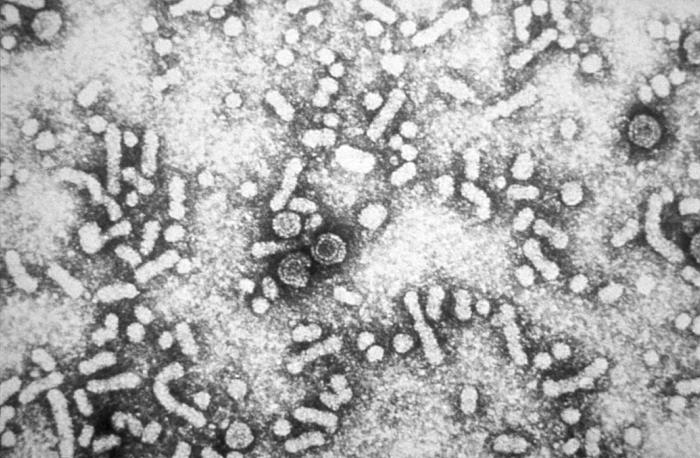GSK plans phase 3 for hepatitis B drug bepirovirsen, despite efficacy drop

GSK has revealed updated results from its phase 2b trial of its antisense drug for hepatitis B virus (HBV) infections, which reveal a sharp decline in the proportion of patients with undetectable levels of the virus compared to an earlier readout.
In the latest results from the 457-patient B-Clear study, published in the New England Journal of Medicine, bepirovirsen at a dose of 300 mg per week over 24 weeks resulted in sustained hepatitis B surface antigen (HBsAg) and HBV DNA loss to below the limits of detection in 9% to 10% of participants with chronic HBV infection.
That is below the 30% rate reported at an interim stage of the study at the International Liver Congress earlier this year, but still sufficient for GSK to take the drug forward into a phase 3 programme due to start in the first half of 2023.
Hepatitis B affects almost 300 million people worldwide, according to GSK, and while nucleoside/nucleotide analogue (NA) drugs to treat it are available – such as Gilead’s polymerase inhibitor Viread (tenofovir) – there is still no curative treatment.
A functional cure is said to have been achieved if HBsAg is cleared from the blood and remains undetectable after stopping all treatment.
In B-Clear, patients with low baseline HBsAg levels responded best to treatment with bepirovirsen, with 16% of patients on NA therapy and 25% of those taking bepirovirsen achieving clearance of the viral biomarkers for 24 weeks after the end of bepirovirsen treatment, without new antiviral medication. For those with higher baseline levels, the endpoint was reached in 6% and 7% of patients, respectively, according to the study authors.
“The results offer an early indication that bepirovirsen might be a potential treatment, either as monotherapy or in combination with NAs, that could result in a functional cure,” said GSK in a statement.
“In addition, the trial identified a potential patient sub-group more likely to benefit from treatment with bepirovirsen, helping to guide future development,” it added.
The study also included two other dosing groups – one looking at 12 weeks of bepirovirsen 300 mg followed by 12 weeks at 150 mg and another testing 300 mg for 12 weeks followed by placebo – but neither performed as well as the full-dose arm.
GSK is conducting trials of bepirovirsen with other therapeutics, with the aim of increasing functional cure rates, including a phase 2b trial in combination with pegylated interferon and a phase 2 study alongside its HBV immunotherapy GSK3528869A.
GSK licensed the drug from long-standing partner Ionis as part of a two-drug deal in 2019, paying $25 million upfront with milestone payments taking the value of the deal up to $262 million.
Analysts at William Blair have suggested that the market for an HBV cure could be around the same size as for hepatitis C virus, which peaked at around $10 billion a year, but was a short-lived bonanza with sales falling sharply as the pool of eligible patients reduced.
GSK has said that it hopes to achieve peak sales of around £2 billion from the drug if it reaches the market. Potential rivals to the drug include Roche/Dicerna’s xalnesiran and Johnson & Johnson/Arrowhead’s ARO-HBV, which are both also in mid-stage testing.












